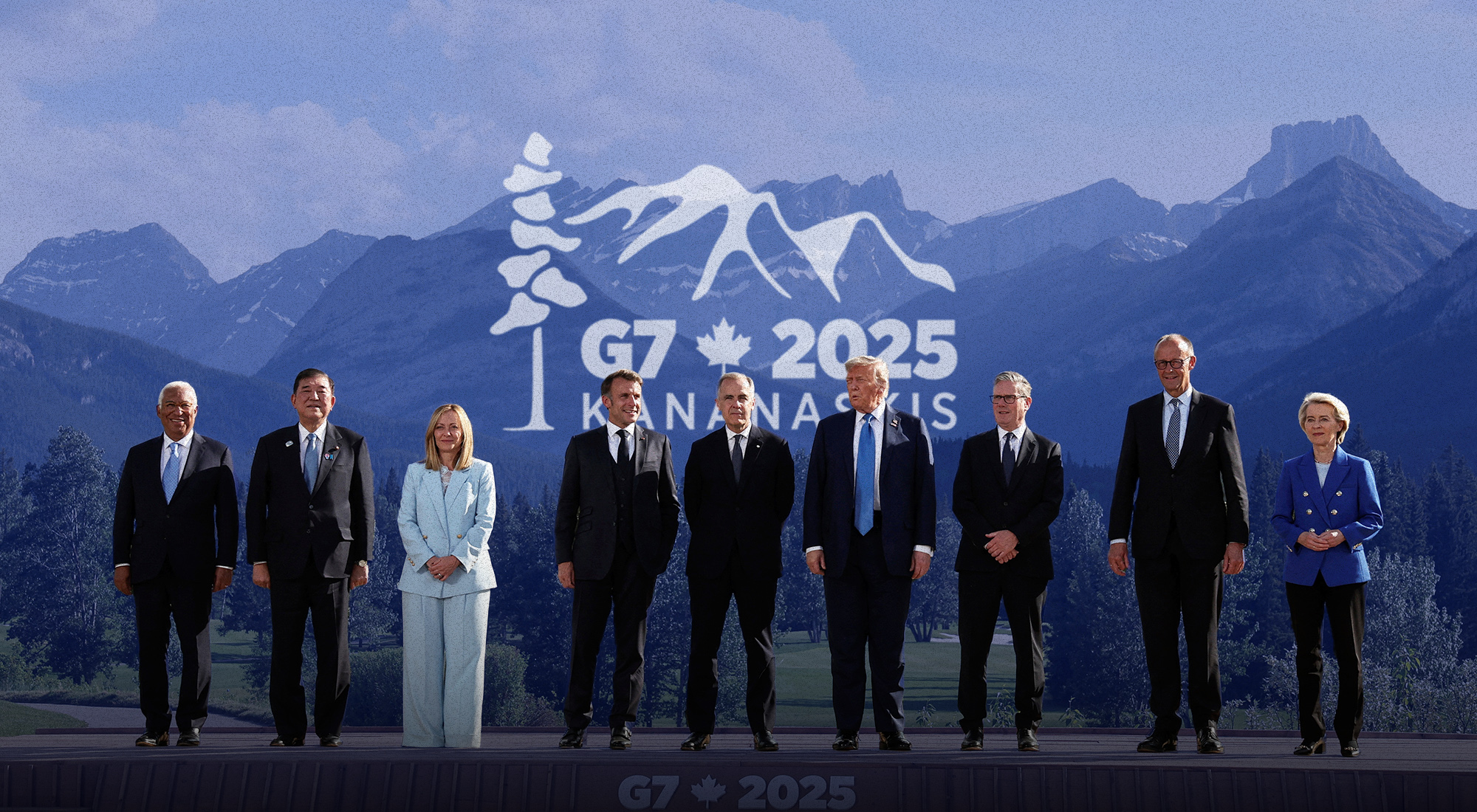Introduction
In recent decades, emerging economies have been saddled with numerous structural challenges, one of which is the lack of strong, inclusive, and efficient economic and political institutions. Such a deficiency inhibits sustained growth and development. In the absence of strong and robust institutions, weak and extractive ones tend to provide an environment where corruption, inefficiency, and rent-seeking are enabled. They can also marginalize and stifle specific sectors of the economy, invariably giving rise to the proliferation of black markets and informal sectors to the degree that then becomes hard to curb.
What are institutions? Douglas North described institutions as “humanly devised constraints” that guide social, economic, and political interactions. [1] Helmke and Levitsky defined formal institutions as those involving rules and processes conducted through officially sanctioned mediums. Informal institutions refer to often unwritten, communally established rules shared and administered via unofficial means. [2] Informal institutions entail norms and practices that effectively guide many people across societies.
Prominent institution scholars, Acemoglu and Robinson, viewed institutions as “rules influencing how the economy works” and incentives driving people; economic institutions can be inclusive (desirable for the greater good) or extractive (self-benefiting for a few). [3] Hodgson saw institutions as “systems of established and prevalent social rules that structure social interactions.” [4] Institutions are building blocks, akin to protein, in that they are essential for society’s healthy functioning and continued existence. They help to maintain the social contract.
Institution theory attributes growth and development or the lack of it to the types of institutions present in a country – extractive or inclusive. Based on the new institutional economics theory, governance quality can be very responsive to political institutions’ type. Those institutions that ensure the merging of political and developmental incentives and objectives have a higher chance of formulating more effective policies and public administration mechanisms. [5] Classical institutionalism alludes that structural conditions are responsible for institution’s arrangements. [6] In contrast, the new institutional framework is rooted in actor-based models that argue that preferences are borne out of institutional incentives and constraints. [7]
Why institutions matter?
The foundation upon which long-term sustainable development is built rests on the type of institutions in place. Some of these institutions include defined property rights, a fair judicial system, trustworthy tax authority, competent law enforcement, independent central bank, and separation of power. Acemoglu and Robinson emphasize the importance of having inclusive and functional institutions by highlighting that many of the world’s rich nations cultivated inclusive institutions at a given period within the last three centuries, thus setting them on a path to prosperity, albeit with complex obstacles along the way. [8]
Sowell ignores or fails to acknowledge the institution hypothesis and focuses on massive disparities in “geography, demography, history, and culture” as the reason behind the differences in income/wealth between nations. However, Sowell highlights the lack of property rights as prevalent in most “third-world countries,” which paralyzes these countries and prevents their citizens from moving out of poverty. [9]
When economic institutions are inclusive, they enable open and accessible economic choices. The control of wealth and opportunities are not restricted to a few individuals who can use their privileged positions to exert political influence. On the contrary, extractive economic institutions consist of influential individuals who are only self-interested and, as such, seek personal gains over that of the collective. Moreover, there is little to no defined rights system in place. [10] While inclusive institutions create a merit-based reward system, extractive ones destroy the core upon which development and growth should be founded.
Dumitru and Hayat attribute corruption to institutional weakness in most of these states. They note that corruption “acts as a tax on conducting transactions, which via various channels affects a country’s institutions as well as its economy. [11] Corruption does not exist in a vacuum; environments have been created that make corruption inevitable. The lack of strong and independent economic and political institutions poses serious dangers for many emerging economies. Some scholars attribute the difference between rich and developing countries to the standards of their economic institutions. [12]
Many emerging economies stand to gain from a mixture of public and private partnerships in terms of investment, job creation, and infrastructure development. Also, without strong and proactive institutions to protect investments, capital inflow, and the economic ecosystem, there would likely be negative outcomes owing to deep-lying systemic inefficiencies. Effective institutions can limit actor’s behaviors and provide oversight on other institutions that would operate like a mob ordinarily.
In lieu of the United Nations’ Sustainable Development Goals (SDGs), effective and committed institutions will be vital in achieving all the goals not just in emerging economies but globally. One of the lessons of Covid-19 has been the need for institutions to be adequately prepared, committed, and functional to achieve their objectives and withstand unforeseen circumstances that might require unconventional approaches. Institutions are not the panacea nor only fix to developmental issues. However, when they work well for the greater good, societies are better off, and the economic engine runs smooth.
Empirical cases of institutional breakdown
With regards to sub-Saharan Africa, Sowell references a study that examined and found many sub-Saharan African countries as possessing weak governments in addition to acquisitiveness that fuels them. The study viewed the state governments’ operations as less of a public service provider and more similar to the mafia. [13] In Zimbabwe and Sierra Leone, extractive institutions not only affected “law and order,” they demolished the foundation for “basic economic incentives,” nations lag behind due to these extractive economic institutions. [14] Vicious, widespread corruption is not peculiar to emerging economies only. However, it has plagued many countries in Africa and partly explains why some countries struggle to continue growth.
In Nigeria, a “high-profile” corruption case was reported in 2015. $2.1 billion allocated for the Nigerian army’s fight against Boko Haram was reportedly circumvented toward election campaign activities by the then ruling People’s Democratic Party (PDP). [15] While the money has not been recovered, the failure of the institutions that should have protected Nigerians on the battlefield created an added dimension of distrust. Nigerians do not trust their institutions nor politicians, and that should be alarming. When South Africa’s Jacob Zuma left office, he left with institutional corruption and state capture allegations hanging over his head. Not only did it create public distrust of public institutions, it also exposed the nature of modus operandi from elected officials in the corridors of power in one of Africa’s largest economies.
Institutional corruption has plagued many countries in sub-Saharan Africa, and it is one of many reasons that explain poor political and developmental outcomes. Weak and self-serving institutions have a chain of command that maintains the status quo by remaining very inefficient. Systemic corruption and graft create a patron-clientele relationship that is the antithesis of wealth creation and expansion of the national economic pie. In return, the clients give their support (political, judiciary, etc.) to the patron and this cycle continues. Often, this cataclysmic patron-clientele relationship’s survival depends on how weak the institution is and the surrounding ones that would otherwise check on them, curb excesses and prosecute wrongdoings. Furthermore, those at the very bottom who have no linkages to the power-sharing cabal or realm are left to wallow in poverty while inequality also widens.
In Ghana, cocoa and gold have always been key revenue-generating resources. However, a myriad of counter-intuitive and failed economic policies led to massive drops in cocoa production, from 19 percent of GDP in the 1950s to 3 percent in the 80s. [16] Interest groups polarization facilitated rent-seeking, which destroyed the cocoa industry, essentially “killing the goose that lays the golden egg.” [17] As far as extractive institutions go, Ghana’s cocoa industry suffered massively from institutional failure – mismanagement and lack of accountability.
Ultimately, in many emerging economies, weak and extractive institutions have led to the marginalization of certain sectors, creating overdependency and invariably leading to the proliferation of black markets and informal sector operations. Sowell highlighted that from India’s working population, “only 10 percent” worked in sectors that were “formal or legally recognized,” additionally, due to “red tape and micro-managing laws and regulations” doing business legally had become expensive. [18] Black markets and informal sectors do not increase in number because of strong and capable institutions. They proliferate because of extractive, stifling, and ineffective institutions. Unsurprisingly, many of those who damage the formal institutions become faceless, active participants in the black market, thus creating environments that resist any clamping down or reform.
Institutional reform: The case of Rwanda
Rwanda has gone through major institutional hurdles, part of which has led to institutional reforms. Post-1994 genocide, the country was left in human, economic, and political ruins. When Paul Kagame eventually became president, he prioritized reconciliation and reconstruction over retributive justice. One of the most prominent institutional reforms made was in the education sector. In 2000, the Rwandan government set out its educational aims in line with the UN Millennium Development Goal – Universal Education for All – and called it VISION 2020. [19]
The central pillar of vision 2020 was human resource development, building a knowledge-based economy, and ensuring that Rwanda became a middle-income country by 2020 through knowledge and skills development. [20] How were the goals going to be achieved? Firstly, through multi-level training needed – primary, secondary, tertiary schooling; secondly, through a focus on vocational & technical training – technology, engineering, and management; and, thirdly, improvements in applied and natural Sciences and information and communication technology.
At the start of the reforms in 2000, net primary school enrollment was 72 percent, with the vision 2020 goal set at 100 percent. As of 2019, the figure stood at 94.79 percent. The teacher qualification rate soared from 20 percent in 2000 to 98.6 percent in 2019. Professional and technical centers stood at 98 in 2019, with the 2020 target being 106. [21] Though the net secondary education enrollment rate remained relatively low compared to other indicators, overall, Rwanda’s educational goals have been mainly met (primary, secondary, and tertiary). Furthermore, there has also been an economic shift in response to ICT and mobile banking infrastructure.
The institutional reform observed in Rwanda’s education sector was of commitment, resoluteness, and forward-thinking to ensure that education and human capacity development was fully harnessed and developed. When undertaking reforms, the institution’s improvement is key, and so is its impact on people. Reforms in Rwanda’s education sector – a vital driver for human capacity development – have not only led to institutional improvement, but the impact has also been felt as evident in the number of Rwandan’s who are educated and skilled at various levels.
Recommendations
- Central banks, independent panels, anti-corruption agencies, and courts must be genuinely independent of the government (executive) to enable them to carry out their mandates and tasks effectively without interference and intimidation.
- There must be a continuation in policies and laws rather than frequent changes, as this will allow for commitment to specified objectives, transparency, and accountability to the public and long-term forward-thinking regardless of the institution head or political party in power.
- Economic institutions must incentivize SMEs and the entire economy via favorable business environments devoid of red tapes, investment volatility, hidden charges, high taxes, and cumbersome entry barriers.
- Heads of institutions, officials, and contractors who mismanage funds or engage in cronyism and other illegal activities must be adequately punished to serve as a deterrent while maintaining the institution’s integrity and preventing institutional decay and breakdown.
- Institutional reforms are key, therefore, citizens, veto players, and relevant international actors must consistently demand for inclusive reforms and efficiently serve the greater good.
Conclusion
In states where institutions and agencies (courts and anti-corruption bodies) responsible for tackling corruption are on the payroll of powerful financiers and patrons, such a situation makes a mockery of the notions of transparency, accountability, and justice for the common good. Looking at Zimbabwe, Sierra Leone, and Nigeria, for instance, the disregard for institutions and the damage done to them has left profound cracks in these states’ social, economic, and political fabric. This is a quintessential example of weak institutions creating monsters they cannot tame.
The institutional breakdown does not happen overnight and is rarely the responsibility of a single individual. Instead, such breakdowns are gradual and often aided by rent-seeking actors, officials, and weak upholding and enforcement of the existing laws. When institutional reforms deliver results, as seen in Rwanda, human development and national development are enhanced.
Ideally, the trajectory of growth and development devoid of endemic corruption is much more rewarding than one ridden with corrupt practices. Emerging economies that actively seek to build robust, inclusive, and efficient economic and political institutions are better positioned to foster long-run growth and development. However, to do that, states must first recognize and admit their institutions’ weaknesses and inefficiencies before they can begin to comprehensively address them, which takes more than “political will.”
Creating institutions will not provide quick fixes to complex, multilayered economic and political jigsaw puzzles. However, over time, they will evolve and become more robust and provide solid foundations upon which sustainable development can be built. All things being equal, a decisive move to break away from business as usual is an absolute must for institutions and those who lead them.
Finally, the importance of effective and capable institutions for socio-economic, political, and development outcomes cannot be overemphasized. Without judicious use of public funds and proper oversight and accountability, there is a risk that those who exploit institutional weaknesses to loot with impunity will undermine national economic wealth. Thus, the quest for strong, effective, and inclusive institutions must remain a continuous and committed endeavor.
References:
[1]. North, D. (1991). Institutions. The Journal of Economic Perspectives, 5(1), 97-112, p. 97.
[2]. Helmke, G., Levitsky, S. (2004). Informal Institutions and Comparative Politics: A Research Agenda. Perspectives on Politics, vol. 2, no. 04, pp. 725–740. p. 726.
[3]. Acemoglu D., Robinson, J. A. (2012). Why Nations Fail: The Origins of Power, Prosperity, and Poverty. New York: Crown Business. Print, p. 60.
[4]. Hodgson, G. M. (2006). What Are Institutions? Journal of Economic Issues, XL, no. 1, p. 2.
[5]. Alence, R. (2004). Political institutions and developmental governance in sub-Saharan Africa. Journal of Modern African Studies, Cambridge University Press. No. 42, 2, pp. 163–187.
[6]. Kaiser, A. (1997). Types of Democracy: From Classical to New Institutionalism. Journal of Theoretical Politics, 9(4), 419–444. https://doi.org/10.1177/0951692897009004001
[7]. Grofman, B. (1989). The Federalist Papers and the New Institutionalism: An Overview in Bernard Grofman and Donald Wittman (eds). The Federalist Papers and the New Institutionalism. New York: Agathon.
[8]. Acemoglu D., Robinson, J. A. (2012). Why Nations Fail: The Origins of Power, Prosperity, and Poverty. p. 80.
[9]. Sowell, T. (2006). Economic Facts and Fallacies. New York: Basic Books. p. 160.
[10]. Acemoglu D., Robinson, J. A. (2012). Why Nations Fail: The Origins of Power, Prosperity, and Poverty.
[11]. Dumitru, A., Raphie, H. (2015). Sub-Saharan Africa: politically more stable, but still fragile. RaboResearch – Economic Research.
[12]. Kay, J. A. (2003). Culture and prosperity: Why some nations are rich but most remain poor. New York, NY: Harper Business.
[13]. Sowell, T. (2006). Economic Facts and Fallacies. p. 175.
[14]. Acemoglu D., Robinson, J. A. (2012). Why Nations Fail: The Origins of Power, Prosperity, and Poverty.
[15]. Olorunmola, A. (2016). Cost of Politics in Nigeria. wfd.org, Westminster Foundation for Democracy.
[16]. Easterly, W. (2001). The Elusive Quest for Growth: Economists’ Adventures and Misadventures in the Tropics. MIT Press, Print. p. 260.
[17]. Ibid. p. 261.
[18]. Sowell, T. (2006). Economic Facts and Fallacies. p. 165.
[19]. Ntale, A. (2013). The Metamorphosis to a Knowledge-Based Society: Rwanda. World Economic Forum. Chapter 2.2. pp. 119-125. p. 119.
[20]. Ibid. p. 119.
[21]. Ministry of Education (2018). Education Statistics. Kigali: National Institute of Statistics of Rwanda.








